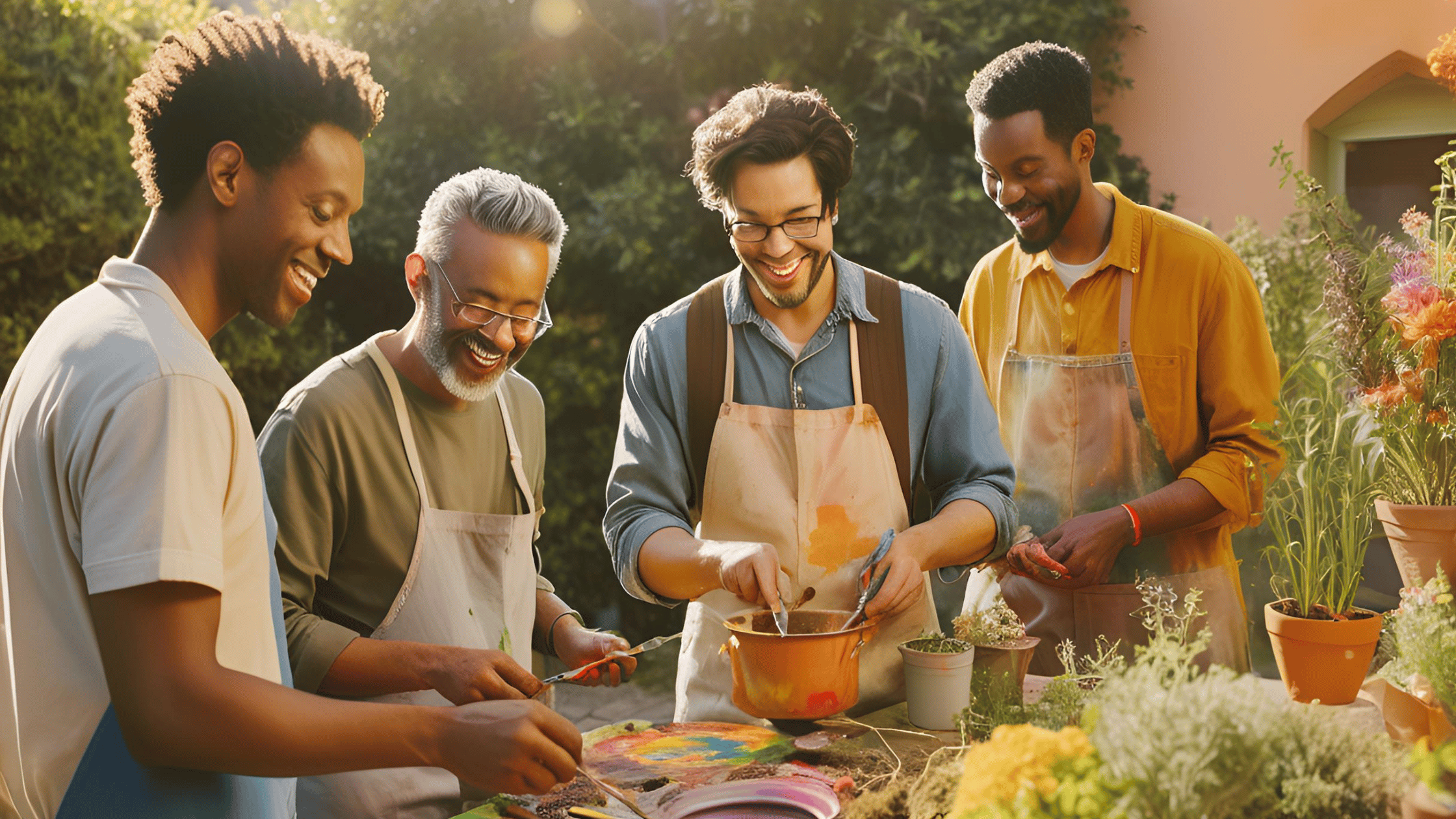Divorce can be one of the most challenging experiences in life. It often feels like your world has been turned upside down, leaving you unsure of who you are or where you’re going. But here’s the good news: this time of uncertainty can also be a time of growth. One way to heal and rebuild your life is by learning new skills through hobbies.
Learning something new isn’t just about picking up a new hobby—it’s about rediscovering yourself, finding joy, and creating a sense of purpose. Whether it’s learning to cook, taking up painting, or mastering a new language, skill-based hobbies can help you heal emotionally and feel empowered.
In this post, we’ll explore why learning is so powerful during recovery and share some simple, enjoyable skill-based hobbies to try after divorce. If you’re just starting your recovery journey, check out our Guide to Starting Fresh After Divorce for helpful first steps.
Why Learning New Skills Can Help You Heal
Learning a new skill offers more than just the skill itself. It gives you something to focus on, helps you grow, and reminds you that life is full of possibilities—even after a major change like divorce. Here’s why it works:
- Gives You Purpose: When life feels aimless, having a goal or a project can give you direction and motivation.
- Distracts From Negative Thoughts: Focusing on something new keeps your mind busy, helping to ease stress and anxiety.
- Boosts Confidence: Accomplishing small milestones, like finishing a project or learning a recipe, reminds you of your strengths.
- Encourages Growth: Every new skill you learn is a step forward. It’s proof that you’re capable of adapting and thriving.
- Connects You to Others: Many skill-based hobbies allow you to meet people who share your interests, helping you build a supportive community.
If you’re dealing with emotional stress, our Tips for Managing Stress After Divorce can help you find relief.
Skill-Based Hobbies to Try After Divorce
Here are some skill-based hobbies that can inspire you, lift your spirits, and help you rediscover yourself:
1. Cooking or Baking
- Why: Learning to cook can be a creative and therapeutic way to care for yourself. Plus, it’s a life skill that adds value to your everyday routine.
- How to Start: Begin with simple recipes or take an online cooking class. Platforms like YouTube offer free tutorials to help you get started.
- Read More: Check out our Beginner’s Guide to Self-Care Through Cooking for tips and easy recipes.
2. Learning a Musical Instrument
- Why: Music is deeply connected to emotions and can be incredibly soothing. Playing an instrument is both challenging and rewarding.
- How to Start: Rent or borrow an instrument to see if you enjoy it. Many online resources, like apps or beginner tutorials, make learning accessible.
3. Painting or Drawing
- Why: Art allows you to express feelings that may be hard to put into words. It’s also a wonderful way to focus on the present moment.
- How to Start: Grab some basic art supplies and let your creativity flow. Start small with simple sketches or guided tutorials.
4. Gardening
- Why: Gardening connects you with nature, which is proven to reduce stress and improve mood. It’s also satisfying to watch something grow under your care.
- How to Start: Begin with indoor plants or a small herb garden. If you’re feeling adventurous, try growing vegetables in your backyard or balcony.
5. Photography
- Why: Photography encourages you to see the beauty in everyday life. It’s a hobby that combines creativity with exploration.
- How to Start: Use your smartphone or a basic camera to practice capturing moments that inspire you. Join photography groups to learn and share your work.
6. Learning a New Language
- Why: A new language is not only mentally stimulating but also opens doors to new cultures and experiences. It’s a skill you can carry with you anywhere.
- How to Start: Use apps like Duolingo or Babbel for easy, beginner-friendly lessons. Practice a little every day to make steady progress.
7. Woodworking or Crafting
- Why: Creating something with your hands can be deeply satisfying. Crafting also allows you to see tangible results of your effort.
- How to Start: Begin with small projects like building a birdhouse or making jewelry. Look for DIY tutorials online for guidance.
8. Writing or Journaling
- Why: Writing helps you process emotions, organize thoughts, and express creativity. It’s also a way to track your growth.
- How to Start: Dedicate 10–15 minutes daily to writing about your day or exploring creative ideas. Learn more in our Guide to Healing Through Writing.
Tips for Success
Starting a new hobby might feel overwhelming at first, but it doesn’t have to be. Here are some tips to make the process easier:
- Start small and choose something you genuinely enjoy.
- Set realistic goals to avoid feeling pressured.
- Celebrate small wins to keep yourself motivated.
- Share your progress with others for encouragement and support.
If you’re feeling unsure about how to get started, read our Step-by-Step Guide to Building Confidence After Divorce for practical tips.
Final Thoughts
Exploring skill-based hobbies after divorce is about more than just filling time—it’s about rediscovering your potential, finding joy, and creating a fulfilling life. Each new skill you learn is a step forward, reminding you that you’re capable of growth and transformation.
Take a moment to reflect on what interests you and start small. Whether it’s cooking, painting, gardening, or learning a new language, the possibilities are endless. Remember, this is your time to focus on yourself and rebuild with intention. You’ve got this!


